Last Updated on May 26, 2025 by Andreas
Embracing the Outdoors: The Transformative Power of Camping
In an increasingly digital world, the ancient allure of the wilderness retains its powerful draw. A popular escape for many, camping takes us back to the basics, rewires our stressed minds, and invites us to breathe the unfiltered essence of nature. But why do we go camping, and what makes it so good for us?
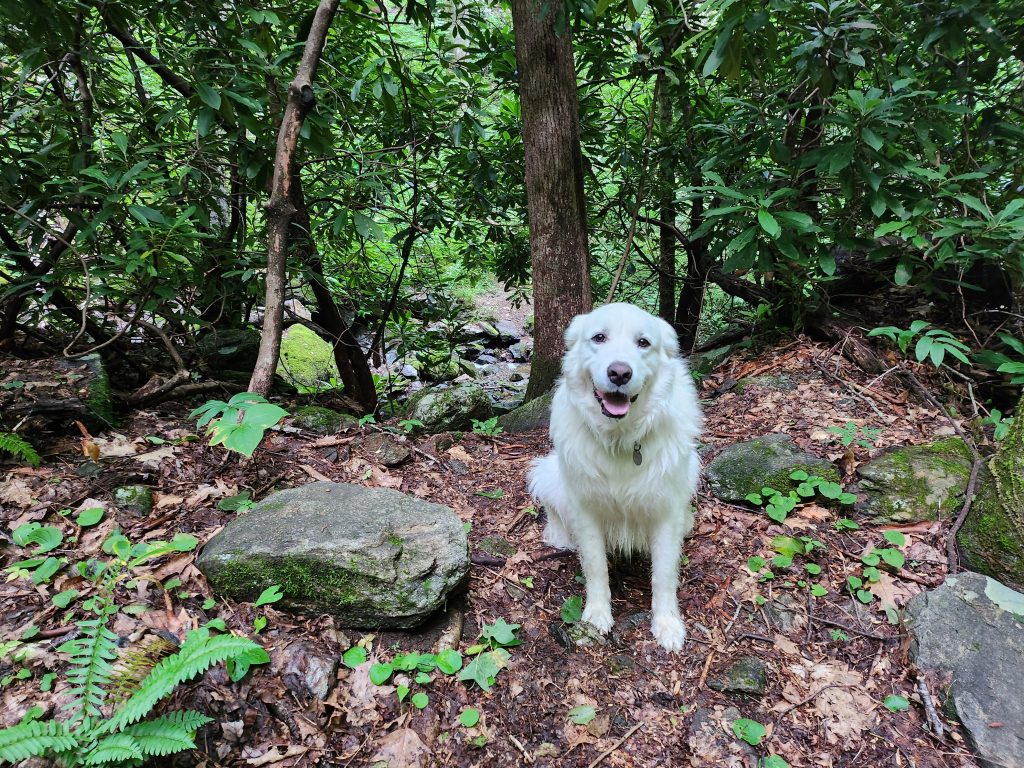
Top Three Benefits of Camping
Camping offers a wealth of benefits that invigorate our bodies, soothe our minds, and enrich our relationships. Let’s delve deeper into the top three benefits:
- Improved Physical Health: Outdoor activities are a cornerstone of the camping experience, and these activities offer ample opportunity for physical exertion. From pitching a tent and gathering firewood to hiking up a picturesque trail or paddling a canoe, camping is a surefire way to get moving and engage multiple muscle groups. The fresh air can help to cleanse the lungs and the exposure to sunlight helps our bodies produce vitamin D, which plays a crucial role in bone health and the immune system. Being active outdoors can also help improve sleep quality, as natural light helps reset our internal body clock. Indeed, camping can be a fun and enjoyable way to maintain fitness levels and promote overall physical health.
- Boosted Mental Health: The tranquil setting of a campsite, away from the noise and bustle of city life, can have a profound impact on mental health. There is a growing body of evidence suggesting that spending time in nature can reduce stress levels, lower blood pressure, and alleviate symptoms of anxiety and depression. The simplicity and predictability of tasks in nature – like preparing meals or setting up a shelter – contrast sharply with the complex challenges of modern life, offering a sense of control and competence. The calming sights and sounds of the wilderness, such as a gently flowing river or a starry night sky, can instill peace, promote mindfulness, and spark joy.
- Enhanced Social Bonds: There’s something inherently communal about a camping trip. Whether you’re sharing the tasks of setting up camp, navigating a new trail together, or swapping stories around a crackling campfire, these shared experiences can strengthen bonds and foster a sense of camaraderie. The cooperative nature of many camping tasks promotes teamwork and empathy. Also, free from the usual digital distractions, people are more likely to engage in meaningful conversations and joint activities, deepening their connections. For families, these shared experiences can become cherished memories, and for friends, they can become inside jokes or milestone moments.
Camping and Mental Health
The wilderness serves as an expansive canvas for the mind, a tranquil escape from the everyday stresses of life. Camping, as an immersion into this natural world, wields a restorative influence on our mental health.
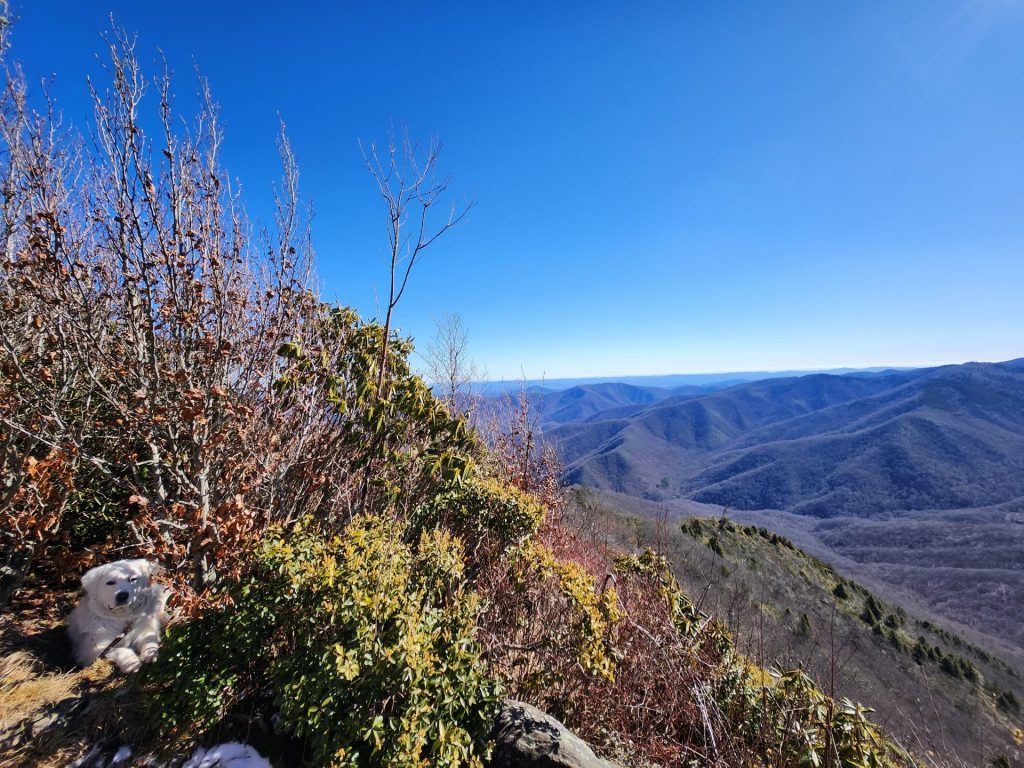
One of the most immediate impacts of camping on mental health is stress reduction. Our modern lives are frequently punctuated with deadlines, constant connectivity, and a deluge of information, all of which contribute to a chronic stress response. Nature, however, provides a stark contrast to this frenetic pace. The serenity of a quiet forest or the rhythmic lullaby of a babbling brook soothes our overworked minds, offering respite from the onslaught of daily pressures. Scientifically, spending time in nature has been shown to lower cortisol levels, a key hormone associated with stress.
Another significant benefit of camping is the improvement of mood and reduction in symptoms of anxiety and depression. Nature, in all its tranquil glory, has a calming effect on the mind. The scenic beauty and peaceful quiet can foster a sense of awe, which studies have linked to better mood, less rumination, and more life satisfaction. The physical activity associated with camping – hiking, setting up tents, or swimming in a lake – also promotes the release of endorphins, the body’s natural mood enhancers.
Camping also encourages mindfulness, a psychological process that involves bringing one’s attention to the present moment. The rustle of leaves, the warmth of the campfire, or the intricate beauty of a single wildflower can anchor us in the now, promoting a mindful state that has been associated with numerous mental health benefits, including decreased anxiety and improved mood.
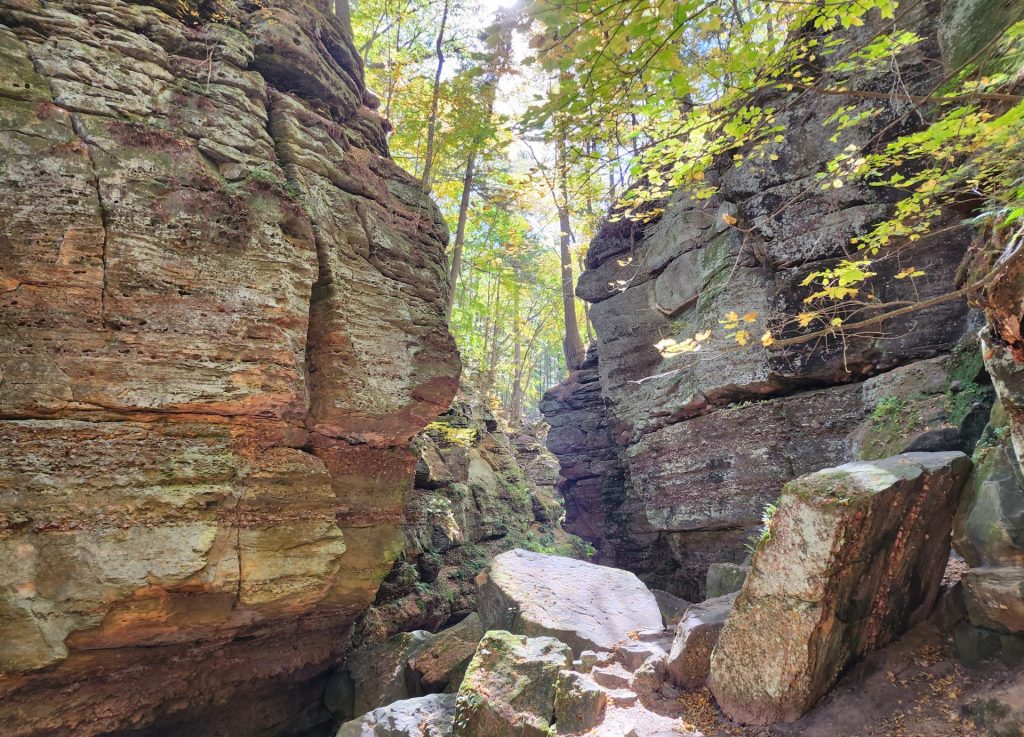
Beyond these immediate impacts, camping also enhances our sleep. By spending time outside and being active during the day, we naturally prime our bodies for a good night’s sleep. Away from the artificial lights of our urban environments, our bodies can adjust to the natural day-night cycle, improving our sleep patterns and quality. Better sleep has a profound effect on mental health, contributing to improved mood, higher cognitive function, and overall psychological well-being.
Camping is also a social activity, providing opportunities for deepened connections with family and friends. Building a campfire, preparing meals together, or navigating a hiking trail foster cooperation, communication, and a shared sense of accomplishment. These social interactions can alleviate feelings of loneliness, increase feelings of belonging, and boost our overall mental health.
The Essence of Camping
Camping is more than a recreational activity; it’s an immersion into an environment that invites us to live more authentically, more slowly, and more harmoniously. Its essence lies not in the mere act of pitching a tent or lighting a fire, but in the transformative experiences and values it imparts.

At the heart of camping is the principle of simplicity. Stripped of the conveniences and complexities of modern life, we are prompted to return to the basics. We learn to appreciate the simple joys – a perfectly toasted marshmallow, the glow of a campfire against the night sky, or the symphony of crickets as a nighttime lullaby. This simplicity can provide clarity, freeing our minds from clutter and allowing us to focus on the essential aspects of life.
Camping also embraces the spirit of adventure. Each camping trip brings new landscapes to explore, challenges to overcome, and experiences to enjoy. Whether it’s navigating through an unknown trail, sighting a rare bird, or experiencing a sudden downpour, these adventures excite our spirits and ignite our curiosity.
Beyond adventure and simplicity, camping teaches us resilience. The unpredictable conditions of the wilderness require us to adapt and respond effectively to a variety of situations. A sudden change in weather, an unexpected wildlife encounter, or the need to erect a shelter before nightfall – these situations teach us to be resourceful, resilient, and prepared, skills that serve us well in the wilderness and in life.
Camping also promotes respect for nature and environmental stewardship. As we spend time in the great outdoors, we come to appreciate its beauty and understand its fragility. We learn the importance of leaving no trace, of preserving nature’s sanctity for future generations to enjoy. This intimate connection with the environment nurtures an ethic of care and conservation.
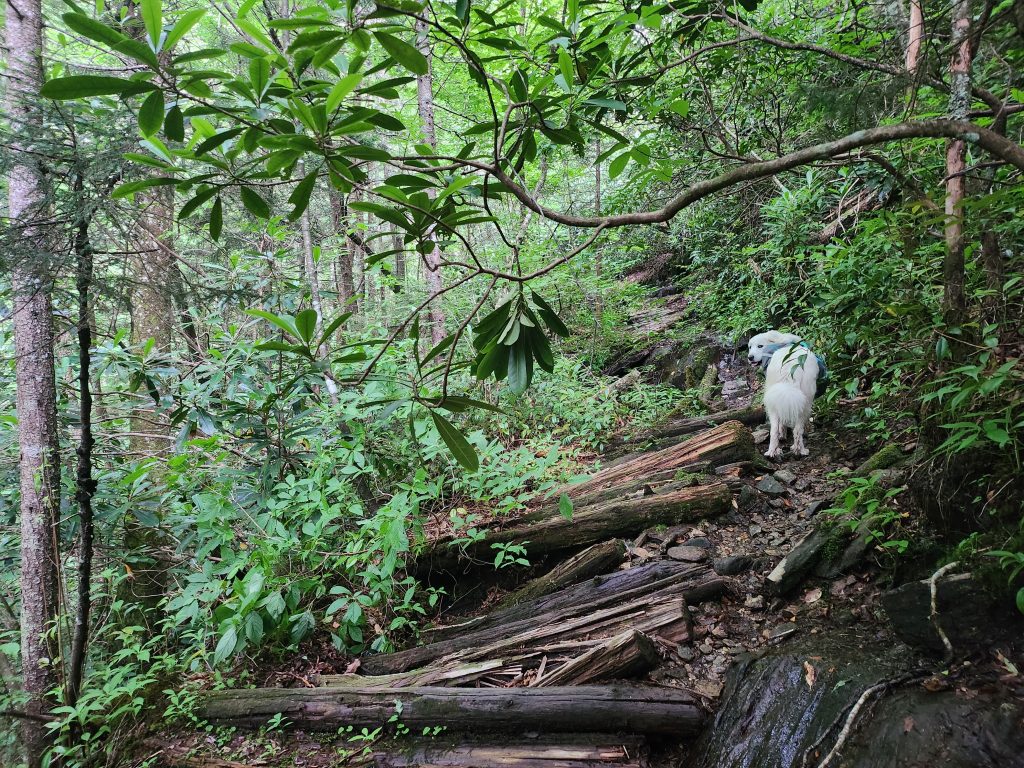
Camping, therefore, is an encapsulation of essential life values – simplicity, adventure, resilience, respect for nature, and community. It’s a journey into the heart of the wilderness and, in many ways, into the heart of what it means to be human. Each trip is a new chapter in the narrative of our lives, filled with experiences that shape us, ground us, and remind us of the simple yet profound joy of being alive and connected to the world around us.
The Pros and Cons of Camping
Camping, like any outdoor activity, comes with its unique set of advantages and disadvantages. While the benefits often outweigh the drawbacks, it’s important to acknowledge both sides to prepare thoroughly and set realistic expectations.
Pros of Camping
- Connection with Nature: Camping offers the opportunity to immerse oneself in the natural world, to be awoken by bird songs, to breathe in fresh air, and to be humbled by starry night skies. This connection can provide a sense of peace and perspective that is hard to find in our busy urban lives.
- Physical Health Benefits: Camping is often associated with a range of physical activities, such as hiking, swimming, or even chopping wood for a campfire. These activities promote cardiovascular health, muscle strength, and overall fitness.
- Mental Health Benefits: The serene environment, away from the hustle and bustle of city life, can help reduce stress and anxiety. The rhythm and simplicity of life in nature can be soothing and rejuvenating for the mind.
- Strengthened Relationships: The shared experiences and teamwork required in camping can strengthen bonds with family or friends. Cooking meals together, telling stories around a fire, and overcoming challenges as a team can lead to lasting memories and deeper relationships.
- Skill Development: Camping also involves a variety of practical skills, such as setting up tents, building fires, and navigating trails. These skills can boost self-confidence and self-reliance.
Cons of Camping
- Discomfort: Depending on the environment and weather conditions, camping can sometimes be uncomfortable. It might be too cold at night, too hot during the day, or unexpectedly rainy. Sleeping on the ground can be hard for those used to more comfortable beds.
- Insects and Wildlife: Encounters with mosquitoes, ticks, and other insects can be annoying and potentially hazardous. Larger wildlife can also pose challenges if not handled appropriately.
- Lack of Modern Conveniences: While part of camping’s appeal is its escape from modern life, the absence of conveniences like electricity, running water, and internet can be a downside for some.
- Preparation and Cleanup: Camping requires significant preparation and cleanup. From packing the right equipment and food to setting up camp and cleaning up afterwards, it can be time-consuming.
- Potential Dangers: From getting lost or injured during a hike to encountering unexpected weather conditions, camping does carry potential risks. However, with proper preparation and adherence to safety guidelines, these risks can be significantly mitigated.
While the challenges of camping are real, many of them can be overcome with preparation, adaptability, and respect for nature. Despite the potential drawbacks, for many, the benefits of camping make it a rewarding experience worth every mosquito bite and momentary discomfort.
The Golden Rules of Camping
While every camper might have their own set of rules based on personal preferences and experiences, there are three golden rules that universally apply and stand out as the cornerstones of any successful and responsible camping expedition:
- Leave No Trace: This principle goes beyond a simple rule and becomes a holistic philosophy adopted by outdoor enthusiasts worldwide. It encompasses the idea of enjoying nature responsibly and sustainably, leaving minimal impact on the environment. Adhering to this principle means leaving the campsite as you found it or even better than you found it. Dispose of waste properly by packing out all trash, leftover food, and litter. Minimize campfire impacts by using a camping stove for cooking and a lantern for light. Respect wildlife and avoid damaging plants and trees. Essentially, ‘Leave No Trace’ encapsulates the ethos of respect for nature and sustainable outdoor practices.
- Prepare Well: Adequate preparation is crucial for a safe and enjoyable camping experience. This involves planning your trip carefully, understanding the environment you’ll be in, and the challenges you might face. Equipping yourself with the right gear is key – this includes reliable shelter, suitable clothing, a first-aid kit, navigation tools, and food and water supplies. It’s also important to prepare for potential changes in weather conditions, emergency situations, and local regulations. Remember the camping adage, “It’s better to have it and not need it than to need it and not have it.”
- Respect Wildlife: The wilderness is home to countless wildlife species, and when camping, we are visitors in their home. It’s essential to observe wildlife from a distance and avoid disturbing them. Never feed wild animals – it’s not only potentially dangerous but can also harm the animals by making them dependent on human food. If you encounter wildlife while hiking or at your campsite, give them plenty of space and appreciate the encounter as a privilege. This rule is integral to the harmony between humans and nature, reinforcing that we are part of a much broader ecosystem.
Adherence to these golden rules ensures a positive camping experience that is respectful of nature and sustainable for future generations. They remind us that camping is not just about personal enjoyment but also about the preservation of the natural spaces that we all love and share.
Camping and Happiness
Happiness, often elusive in our busy urban lives, can be found in abundance while camping. The connection between camping and happiness is profound and multifaceted, extending from the quiet moments of solitude to the shared joy of communal experiences.

When we camp, we escape the stressors of everyday life – the never-ending emails, traffic jams, and hectic schedules. We trade these stressors for a simpler, more rhythmic life under the open sky. This escape allows us to unwind and experience joy in simple things, like the warmth of a campfire, the sound of birds chirping, or the sight of a stunning sunset.
Being physically active during the day, whether it’s setting up camp or exploring nearby trails, produces endorphins – the body’s natural mood lifters. Regular physical activity also contributes to improved sleep, which is known to enhance mood and overall wellbeing.
Camping allows us to reconnect with nature, and this connection has been linked to increased levels of happiness. Exposure to nature can lower blood pressure, reduce stress hormone levels, and promote feelings of relaxation and wellbeing.
Furthermore, camping offers opportunities for social connection and bonding. Sharing stories around a campfire, cooking meals together, and navigating through challenges foster a sense of camaraderie and shared purpose. These shared experiences can lead to positive emotions, increased empathy, and stronger relationships – all integral elements of happiness.
In essence, camping’s unique combination of nature immersion, physical activity, and social connection fosters a conducive environment for happiness to flourish.
Two Things Not to Do When Camping
While camping is generally a fun and beneficial activity, there are certain behaviors that should be avoided to ensure a positive and respectful outdoor experience:
- Ignoring Safety Rules: The safety of yourself and others should always be a top priority when camping. Ignoring safety rules can lead to dangerous situations. This might include failing to store food appropriately to avoid attracting wildlife or neglecting fire safety guidelines, risking wildfires. Always take the time to educate yourself on the safety rules of your chosen camping site and abide by them.
- Disrespecting Nature: Camping offers the privilege of experiencing nature’s beauty up close, and with this privilege comes a responsibility to protect and preserve the environment. Damaging the natural environment, either through littering, carving names into trees, or disrupting wildlife, goes against the core principle of Leave No Trace. This principle encourages minimal impact camping, urging campers to respect wildlife, dispose of waste properly, and leave what they find. Remember, we are visitors in nature and should act accordingly.

Camping and the Brain
The human brain thrives on novelty, and nothing delivers this as effectively as the ever-changing tapestry of nature. When we venture into the wilderness, our senses awaken to the shifting panorama of colors, sounds, and smells. This sensory stimulation invigorates the brain and enriches the mental experience.
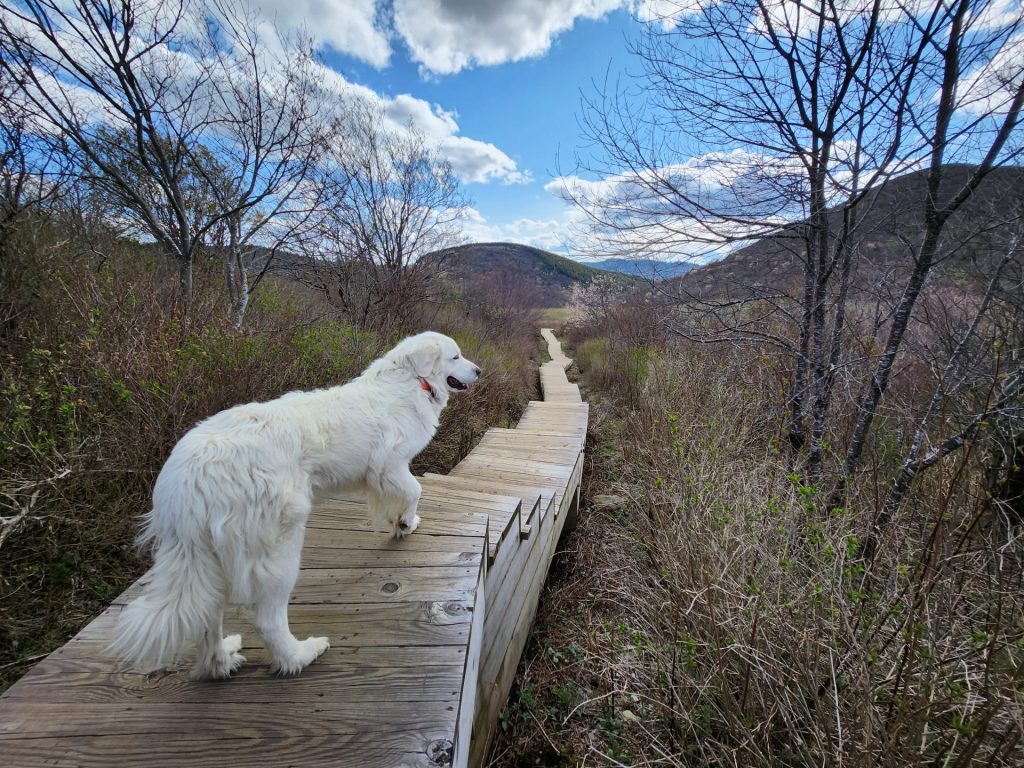
Camping also impacts our brain’s neurochemistry. The tranquil ambience of nature has been shown to increase the production of serotonin and dopamine, neurotransmitters that are vital for mood regulation and feelings of happiness. This natural ‘mood boost’ is one reason why camping can feel so therapeutic.
On a physiological level, camping helps reset our circadian rhythm, the body’s internal biological clock that governs sleep-wake cycles. The natural light-dark cycle of the outdoors helps synchronize this internal clock with the earth’s 24-hour rhythm, enhancing sleep quality and overall rest. Improved sleep is crucial for the brain’s functioning and cognition, affecting memory, attention, and creativity.
The calming effect of nature also encourages mindfulness – a state of active attention on the present. Being mindful while camping, whether you’re observing a leaf’s intricate pattern or listening to the soft murmur of a creek, can stimulate the brain’s prefrontal cortex, the area responsible for complex cognitive behavior, decision making, and social interaction. This heightened sense of awareness not only fosters a deep appreciation for the natural world but also helps us stay mentally agile and focused.
Another intriguing aspect is how camping can change our brain’s stress response. Being in nature can lower levels of the stress hormone cortisol and dampen activity in the prefrontal cortex, an area involved in rumination – the act of repeatedly thinking about distressing situations. This physiological change explains the sense of relaxation and peace many people experience while camping.
In essence, camping acts as a natural brain tonic. It’s a potent mix of sensory stimulation, mood enhancement, circadian rhythm regulation, mindfulness promotion, and stress reduction.
Camping and the Soul
At its core, camping is an activity that invites profound introspection, a chance to align our internal compass with the rhythms of nature. It gives us a sense of belonging to something larger than ourselves, a connection that can be spiritually fulfilling and deeply healing for the soul.
Camping provides a retreat from the frantic pace of modern life, offering a sanctuary where we can find solace in nature’s quiet whispers and grand vistas. It is in these moments of solitude that we can engage in self-reflection, ponder life’s mysteries, and perhaps even unearth hidden aspects of our psyche. The solitude can be a conduit to our deeper selves, a mirror reflecting our innermost thoughts, dreams, and fears.
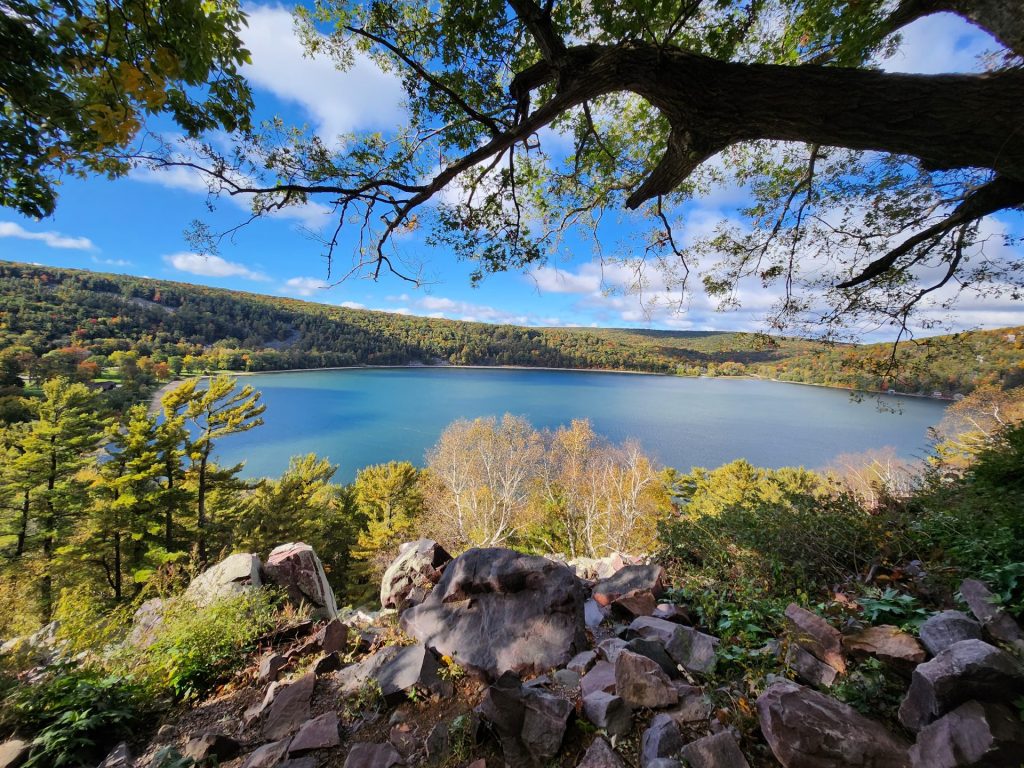
In the wilderness, we are confronted with the raw and unvarnished reality of life. The simple acts of gathering firewood, building a shelter, or preparing a meal over a campfire remind us of our basic human needs, stripping away the superfluous and focusing on the essentials. This simplicity can be a powerful antidote to the materialistic values that often cloud our perspective, reminding us of what truly matters in life – relationships, experiences, personal growth, and a sense of wonder for the world around us.
On a spiritual level, camping allows us to witness the awe-inspiring beauty of nature firsthand. Whether it’s the majestic rise of the sun over a tranquil lake, the intricate dance of fireflies on a warm summer night, or the silent majesty of a forest covered in fresh snow, these moments elicit feelings of awe and wonder, which studies have linked to increased feelings of well-being and generosity.
Camping also teaches us resilience and humility. The unpredictable challenges that arise—unexpected weather, a missed trail turn, or the need to problem-solve without modern conveniences—remind us of our vulnerabilities but also our capacities to adapt and overcome. These experiences cultivate a deeper sense of gratitude for the comforts we often take for granted, fostering humility and resilience in our spirit.
Camping brings us closer to the elemental rhythms of nature – the cycle of day and night, the change of seasons, the ebb and flow of tides. Aligning ourselves with these rhythms can lead to a profound sense of harmony and peace, anchoring us in the present moment and allowing our souls to resonate with the timeless symphony of the cosmos.
The Legality of Camping in the States
Camping is a beloved American pastime, deeply woven into the fabric of the nation’s recreational and cultural identity. However, the legality of camping can sometimes be a complex issue, depending largely on the type of land and the regulations governing it.
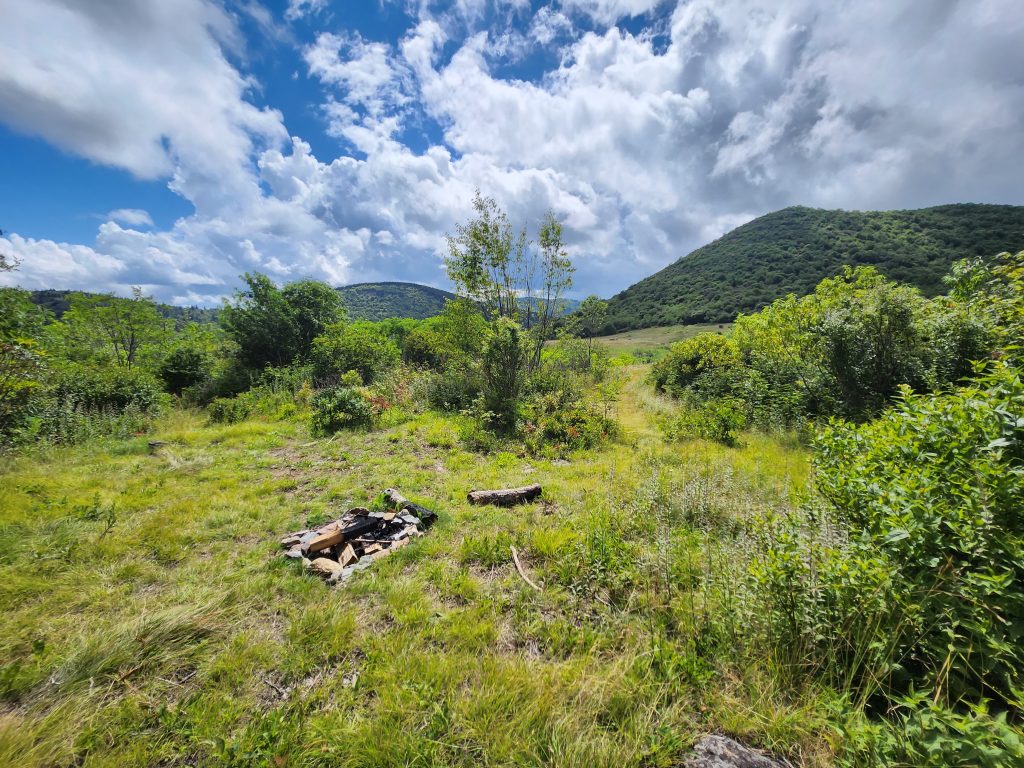
Public lands, such as national parks, state parks, and forests, are the most common legal camping locations. They are designated and managed specifically for public enjoyment, including camping. These sites often provide amenities like established campgrounds, restrooms, and fire pits. However, usage of these spaces usually requires adherence to certain rules to preserve the environment and the experience of other visitors. This may include following established Leave No Trace principles, keeping to designated camping areas, respecting quiet hours, and sometimes even obtaining a permit in advance.
Wilderness camping, also known as dispersed camping, is another legal option available in many areas of the United States, particularly on lands managed by the Bureau of Land Management (BLM) or the U.S. Forest Service. Here, campers can pitch a tent outside of designated campgrounds, providing they follow guidelines designed to protect the land.
The complexities arise when dealing with private property and certain public lands with restrictions. Camping on private lands without the owner’s permission is illegal and considered trespassing. Even certain public lands can have camping restrictions based on the need to protect certain ecosystems, wildlife, or cultural resources.
In urban and suburban areas, the concept of camping takes on different legal implications. Many cities and towns have ordinances that prohibit camping or sleeping in public areas, primarily aimed at managing homelessness. It’s essential to respect these laws and understand that they do not exist to curtail the enjoyment of camping, but rather to address larger societal issues.
Why People Love Camping
Camping stirs something fundamental in the human spirit – an innate desire to connect with nature, seek adventure, and find tranquility. Across the globe and particularly in the United States, camping remains a cherished pastime, a testament to its enduring appeal. Here’s why people are so captivated by it:
- Connection with Nature: The natural world, with its vast landscapes and diverse wildlife, offers a sense of wonder and serenity. Camping provides direct access to this environment, creating opportunities to witness breathtaking sunrises, gaze at star-studded skies, or observe animals in their natural habitats. This immersion in nature can elicit feelings of awe and gratitude, nurturing a deep sense of connection and appreciation for the world around us.
- Adventure and Exploration: Each camping trip is an adventure waiting to unfold. Whether it’s hiking through uncharted trails, discovering hidden waterfalls, or canoeing across serene lakes, the thrill of exploration and the joy of overcoming challenges feed the human spirit’s adventurous side.
- Simplicity and Solitude: In an increasingly complex and connected world, camping offers a refreshing break from the digital noise and fast-paced lifestyle. The simplicity of setting up a tent, preparing meals over a fire, and living with basic necessities can be a liberating experience. It allows us to slow down, embrace solitude, and savor the quiet moments, providing a much-needed respite from the demands of modern life.
- Social Bonding: Camping is often a shared experience, whether with family, friends, or fellow campers. The collective effort of setting up camp, cooking together, and sharing stories around a campfire fosters a sense of camaraderie and deepens relationships. These shared memories and experiences can be incredibly fulfilling, serving as a reminder of the fundamental human need for companionship and connection.
- Physical and Mental Well-being: As we’ve explored earlier in this article, camping has numerous health benefits. The physical activity boosts fitness levels, the fresh air improves overall well-being, and the tranquility of nature can be a boon for mental health. The comprehensive health benefits further amplify camping’s appeal.
- Learning and Skill Development: Camping can be a great learning experience. It teaches us invaluable skills like navigation, resource management, problem-solving, and survival techniques. The learning extends beyond practical skills to include understanding ecosystems, recognizing plant and animal species, and even astronomical observation.
- Spiritual Connection: For many, camping serves as a spiritual journey. The vastness of nature, the cycles of day and night, the elemental forces – all can prompt reflections on life’s big questions, encouraging a sense of peace, purpose, and connection with the universe.
From the joys of adventure to the peace of solitude, from the thrill of exploration to the bonds of shared experience, camping taps into our deepest needs and desires. It’s a multifaceted activity, appealing to our sense of curiosity, our longing for connection, and our pursuit of well-being. It’s little wonder, then, that so many people across the world and in America love camping.
Americans and Camping
Camping holds a special place in the American psyche. It is interwoven with the country’s history, its love for wide open spaces, and its spirit of exploration and adventure. Today, it continues to be a significant part of American culture and recreational activities. Here’s why:
- Historical Roots: Camping has roots in the American frontier spirit. The early pioneers who ventured into the vast and wild landscapes epitomized a spirit of exploration, resourcefulness, and a strong connection with nature. This spirit is echoed in modern camping, reflecting a cultural heritage that values rugged individualism and outdoor skills.
- Diverse Natural Beauty: The United States boasts an incredible diversity of landscapes, from towering mountain ranges and vast forests to sprawling deserts and serene lakes. This makes the country an ideal playground for camping enthusiasts, offering a wide range of environments to explore and experience.
- Access to Public Lands: America’s system of public lands, including national and state parks, forests, and wilderness areas, is a national treasure. These lands are open for public use and provide an abundance of opportunities for camping. This widespread access to nature has helped cultivate a strong camping culture.
- Health and Wellness: With a growing awareness of the importance of mental health and physical fitness, more Americans are seeking activities that contribute to their overall well-being. Camping, with its physical activities and mental health benefits, has become an appealing choice for those looking for a rejuvenating escape from urban life.
- Family Tradition: Camping is often a tradition passed down through generations in many American families. It serves as a bonding opportunity, a chance to share stories and skills, and a way to instill values such as respect for nature and the imwellbeingportance of community.
- Outdoor Education: Many American children are introduced to camping through scouting organizations, school trips, or community groups. These experiences foster an early appreciation for the outdoors and teach valuable life skills.
- Camping Industry: The camping industry in the United States, including camping gear, campgrounds, and RVs, is robust and continues to grow. This industry not only supports the camping culture but also evolves with it, providing innovations that make camping more accessible and enjoyable.
From its historical roots to its natural landscapes, from health benefits to family traditions, camping is a quintessential part of American life. It embodies values of exploration, respect for nature, self-reliance, community, and wellness. As more Americans discover and rediscover the joys of camping, this love affair is likely to continue, reinforcing camping’s status as a cherished American pastime.
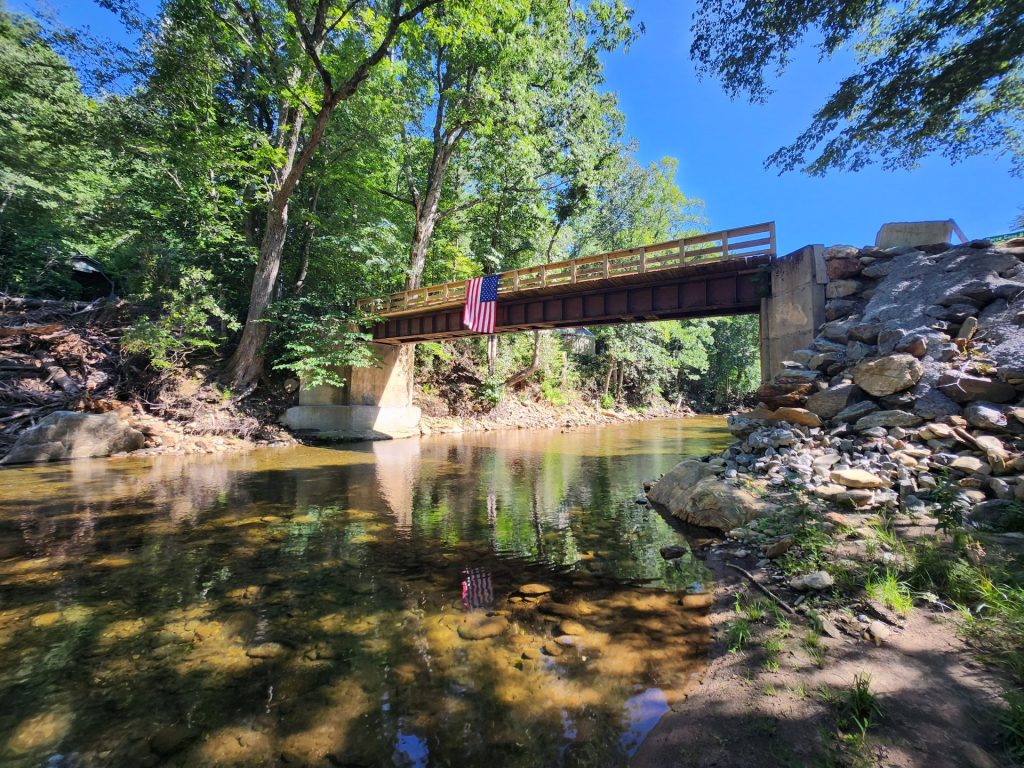
Final Reflections: The Call of the Wild
As we’ve seen throughout this exploration, camping is far more than just a getaway or a pastime. It’s a potent tool for self-discovery, a medium for nurturing our physical health, mental wellbeing, and social bonds, and a catalyst for a deeper appreciation of the natural world around us. While it does come with its challenges, the benefits it offers make those challenges worth facing.
Perhaps the greatest takeaway from camping is its capacity to make us feel fundamentally human. In the wilderness, removed from the trappings of modern life, we’re able to connect with our primal roots, finding joy in simplicity and tranquility. We are reminded of our place in the grand scheme of things, humbled by the magnificence of nature, and enriched by our interactions with others.
Camping also teaches us essential life lessons, like the importance of preparation, respect for nature, and the power of teamwork. It’s an experience that can challenge us, change us, and ultimately help us grow.
So, the next time you’re yearning for a break from your daily routine or searching for a dose of happiness, consider packing your tent and heading for the hills. Whether you’re drawn to the physical exertion, the allure of the wild, or the allure of the stars unhindered by city lights, camping awaits to offer its many gifts. Remember the golden rules, respect the environment, and most importantly, savor the experience. In the grand canvas of nature, beneath the open sky, you might just find what you’re looking for.
As author and environmentalist John Muir once said, “Anwellbeingd into the forest I go, to lose my mind and find my soul.” May your camping experiences lead to similar discoveries and memories to treasure.
Happy camping!

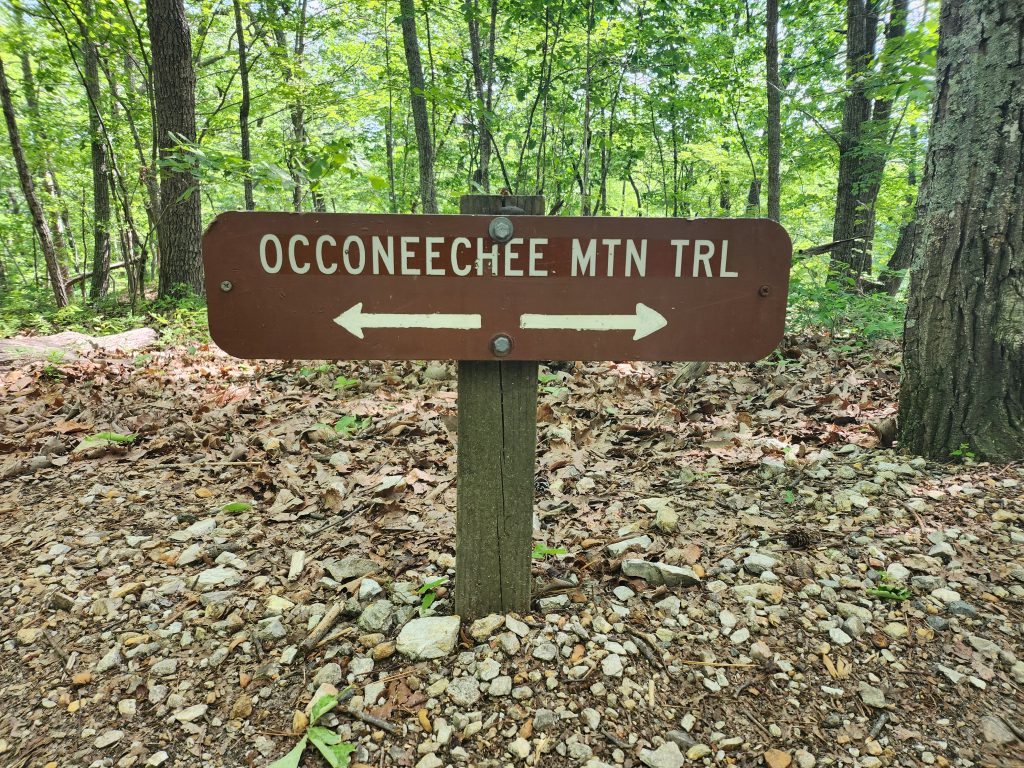

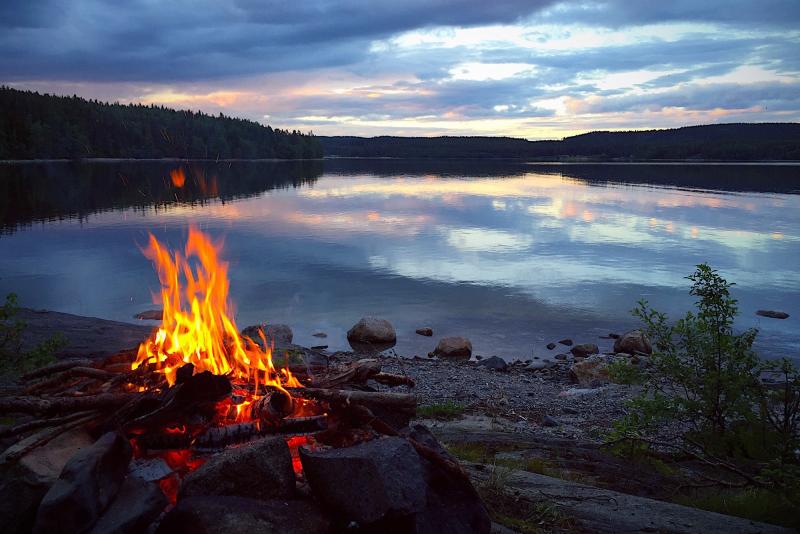
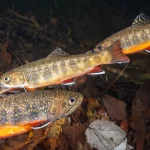
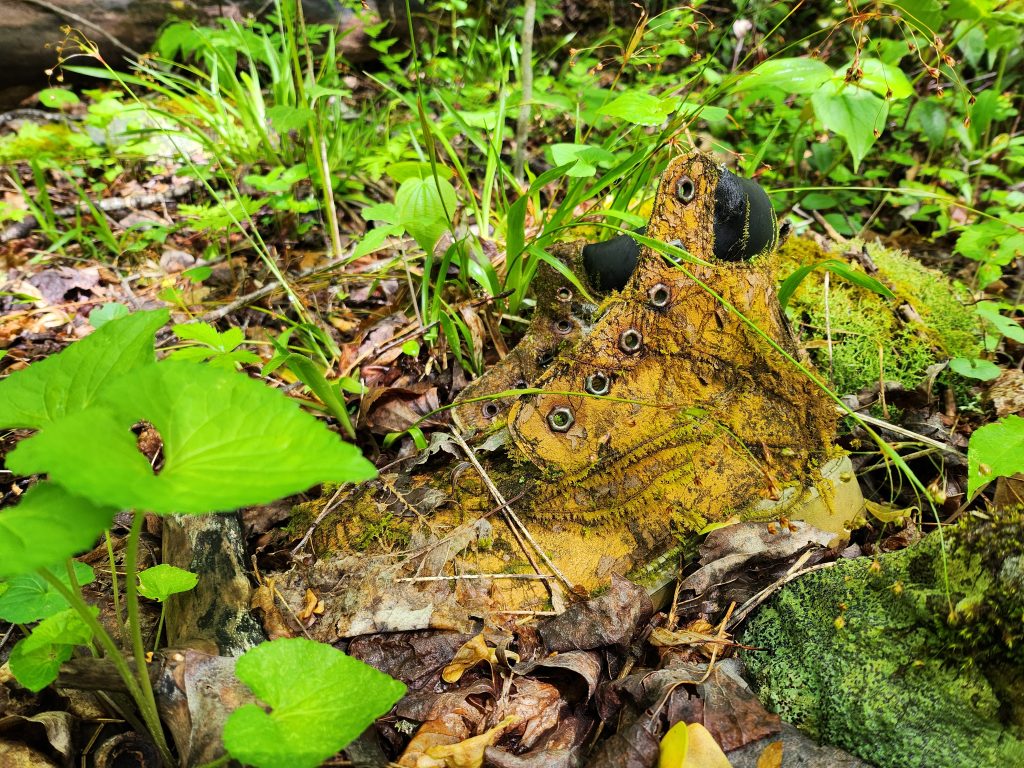
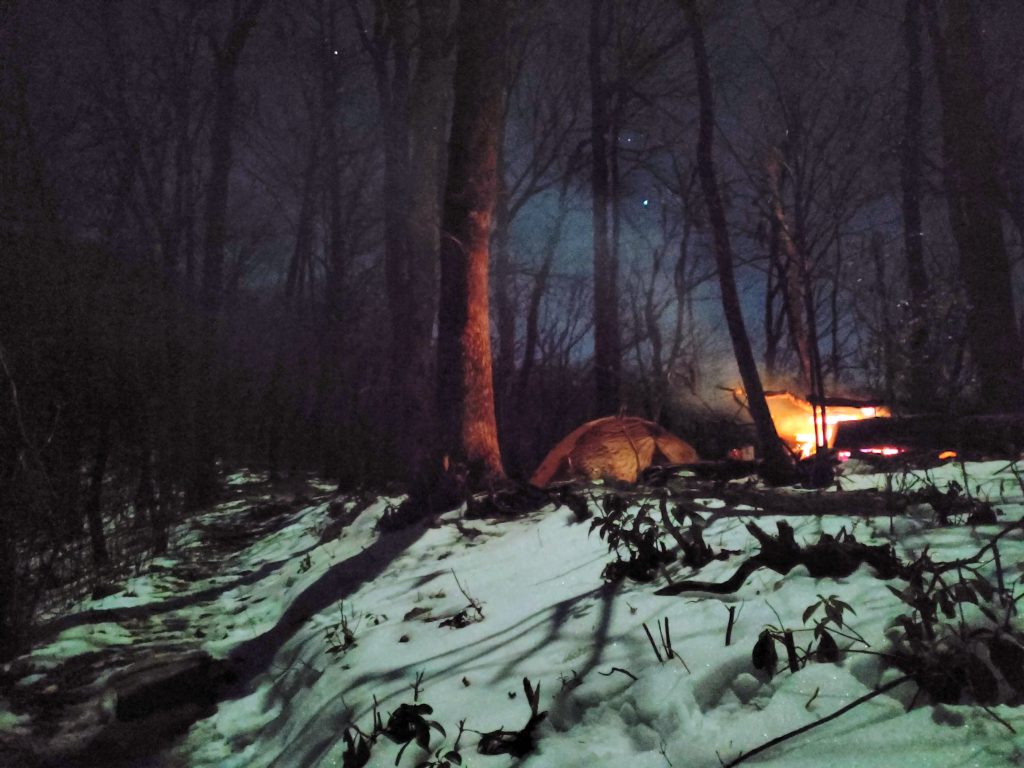

Leave a Reply